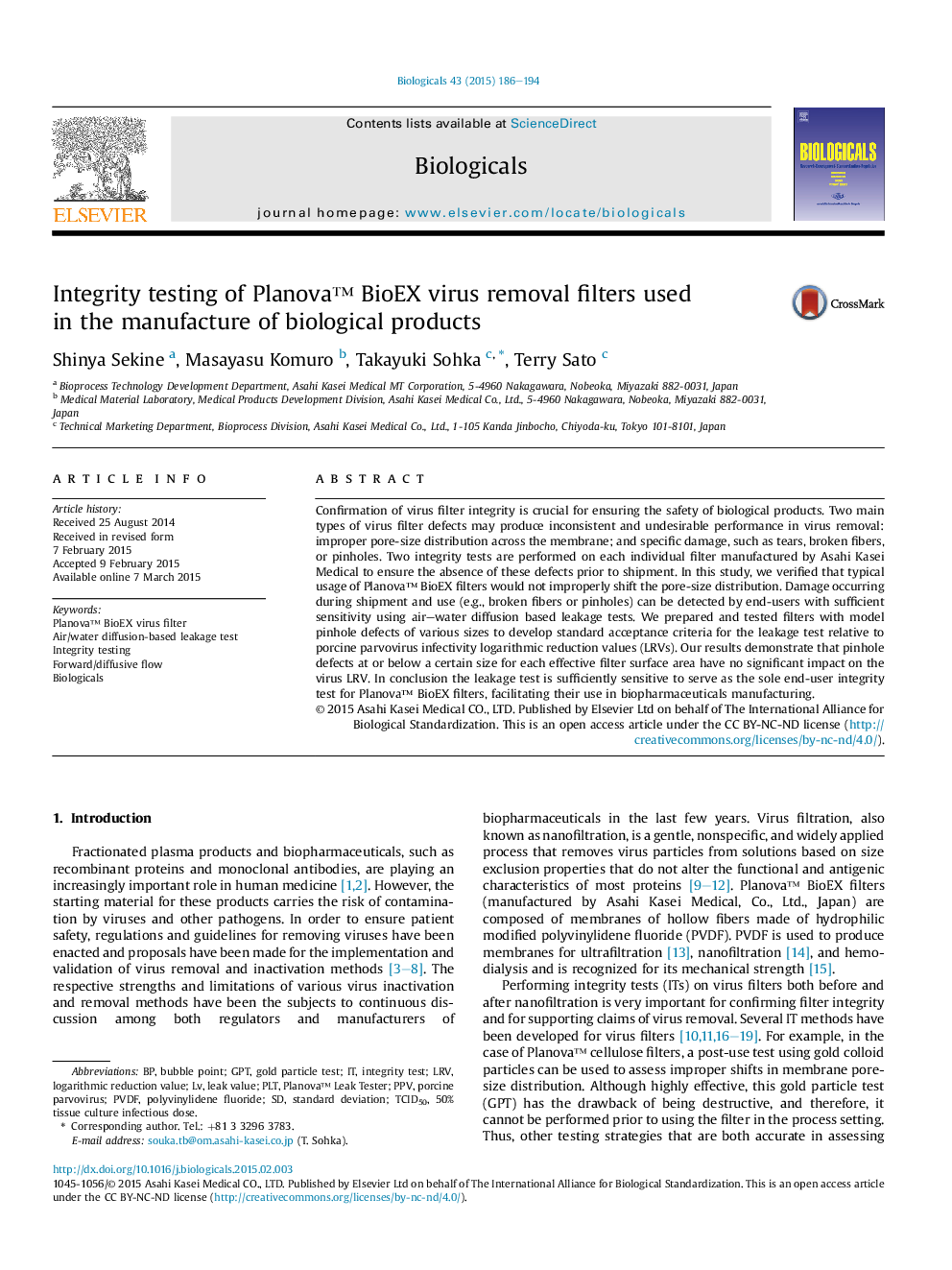| Article ID | Journal | Published Year | Pages | File Type |
|---|---|---|---|---|
| 10852645 | Biologicals | 2015 | 9 Pages |
Abstract
Confirmation of virus filter integrity is crucial for ensuring the safety of biological products. Two main types of virus filter defects may produce inconsistent and undesirable performance in virus removal: improper pore-size distribution across the membrane; and specific damage, such as tears, broken fibers, or pinholes. Two integrity tests are performed on each individual filter manufactured by Asahi Kasei Medical to ensure the absence of these defects prior to shipment. In this study, we verified that typical usage of Planova⢠BioEX filters would not improperly shift the pore-size distribution. Damage occurring during shipment and use (e.g., broken fibers or pinholes) can be detected by end-users with sufficient sensitivity using air-water diffusion based leakage tests. We prepared and tested filters with model pinhole defects of various sizes to develop standard acceptance criteria for the leakage test relative to porcine parvovirus infectivity logarithmic reduction values (LRVs). Our results demonstrate that pinhole defects at or below a certain size for each effective filter surface area have no significant impact on the virus LRV. In conclusion the leakage test is sufficiently sensitive to serve as the sole end-user integrity test for Planova⢠BioEX filters, facilitating their use in biopharmaceuticals manufacturing.
Keywords
Related Topics
Life Sciences
Biochemistry, Genetics and Molecular Biology
Biochemistry, Genetics and Molecular Biology (General)
Authors
Shinya Sekine, Masayasu Komuro, Takayuki Sohka, Terry Sato,
